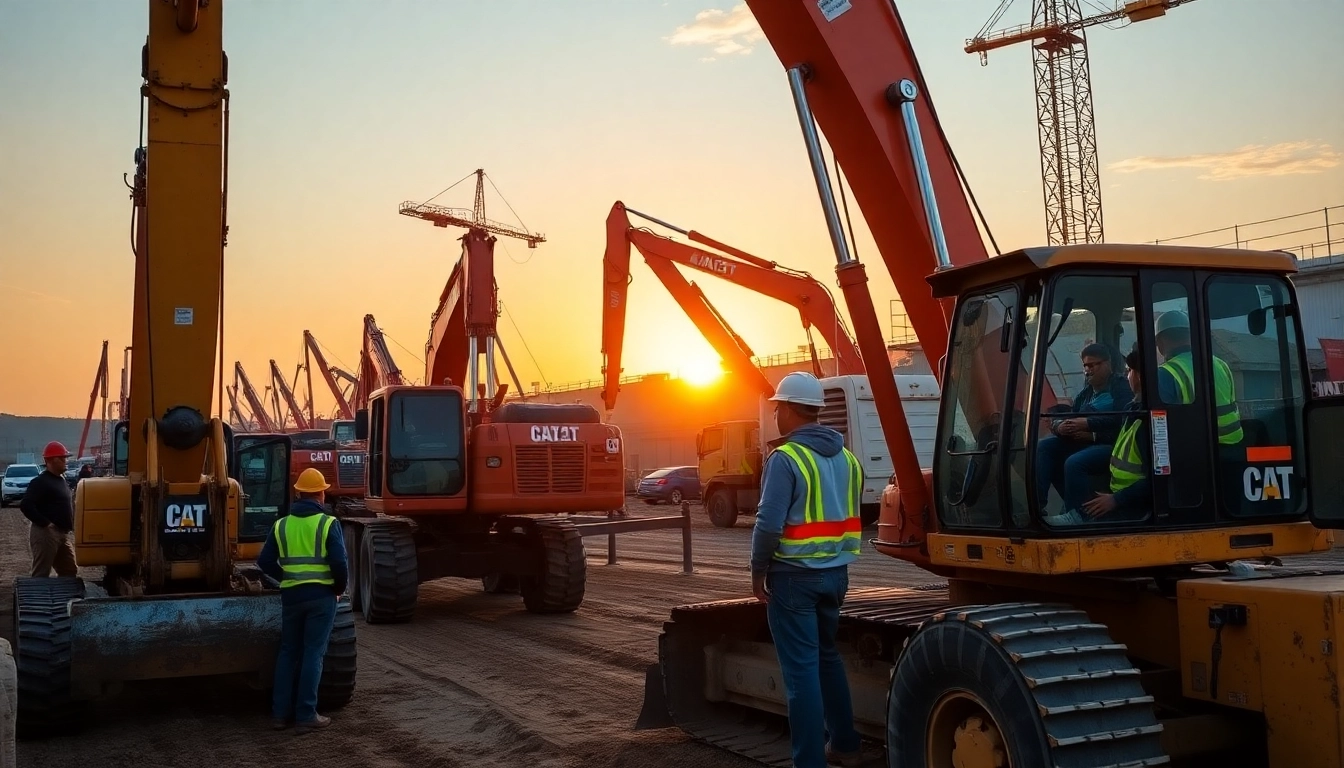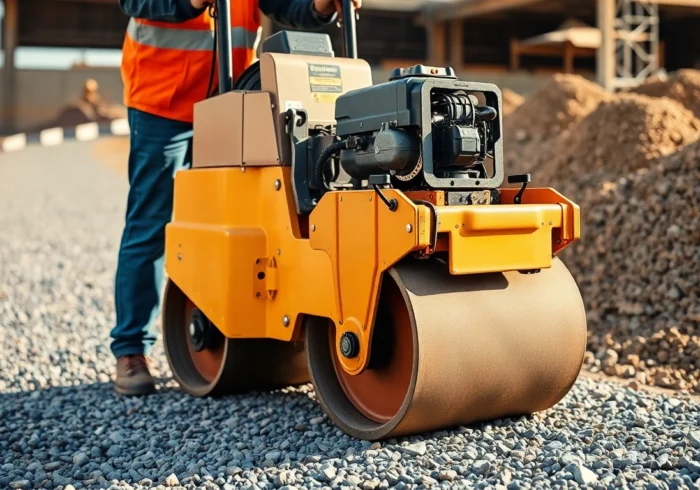Maximizing Construction Success with Equipment Rental in the UK
In the competitive and fast-paced world of construction, efficiency, cost management, and reliability are paramount. One of the strategic approaches gaining traction among industry professionals is construction equipment rental. By opting for rental instead of purchase, firms can access a wide range of modern, well-maintained machinery, reduce overhead costs, and adapt swiftly to project demands. This comprehensive guide delves into the multifaceted advantages of construction equipment rental in the UK, offering actionable insights to help contractors, site managers, and project owners optimize their operations and achieve project success.
Understanding the Benefits of Construction Equipment Rental in the UK
Cost Savings and Budget Flexibility
One of the most compelling reasons for choosing equipment rental is the significant cost savings it offers. Purchasing heavy machinery involves substantial upfront investments, ongoing maintenance expenses, storage costs, and depreciation. Rental eliminates many of these financial burdens by converting large capital expenditures into manageable operating expenses. Contractors can allocate budget resources more effectively, focusing on core construction activities rather than equipment upkeep. Additionally, rental agreements often include maintenance and repairs, further reducing unexpected costs and ensuring equipment remains in optimal condition throughout the project.
Moreover, rental provides flexibility in budgeting, allowing projects to scale equipment use based on actual needs. For instance, a construction site may require excavators only during certain phases. Renting on a short-term basis prevents idle equipment from inflating costs and ensures financial efficiency. This adaptability is especially beneficial for firms managing multiple projects, as they can allocate resources dynamically without committing to long-term investments.
Access to Modern and Well-Maintained Equipment
The construction industry’s technological landscape is evolving rapidly, with innovations aimed at enhancing productivity, safety, and environmental sustainability. Rental companies in the UK typically maintain a fleet of the latest models equipped with advanced features, such as improved fuel efficiency, emission controls, and automation capabilities. By renting from reputable providers, construction firms gain access to state-of-the-art machinery that might otherwise be prohibitively expensive to purchase or maintain.
Maintained by dedicated teams, rental equipment undergoes regular inspections, servicing, and upgrades, ensuring high-performance standards. This reduces the risk of breakdowns, delays, and safety hazards caused by outdated or poorly maintained machinery. For example, modern excavators equipped with GPS and telematics systems allow for precise operation and real-time monitoring, leading to greater efficiency and accountability on-site.
Reducing Storage and Maintenance Hassles
Managing a large inventory of construction equipment entails considerable logistical challenges, including storage space, security, and maintenance scheduling. Rental arrangements mitigate these issues by providing equipment exactly when needed, without the necessity of dedicated storage facilities. This is especially advantageous for companies operating in densely populated urban areas or remote sites where space is at a premium.
Furthermore, rental providers handle routine maintenance, repairs, and equipment replacement, alleviating the administrative burden on the contractor’s team. This allows project managers to focus entirely on core activities, improving overall project coordination and productivity.
Selecting the Right Construction Equipment Rental Partner
Key Factors to Consider in Rental Providers
Choosing a reliable and capable rental partner is crucial for project success. Quality of service, equipment reliability, and customer support can significantly impact operational efficiency. Key considerations include:
- Reputation and Industry Experience: Opt for providers with proven track records in the UK construction sector. Look for reviews, case studies, and industry certifications.
- Compliance and Safety Standards: Ensure the provider’s equipment meets UK safety regulations, such as LOLER and PUWER standards, reducing liability risks.
- Flexible Rental Terms: Select partners offering short-term, long-term, or turnkey solutions tailored to your project needs.
- Transparency and Pricing: Clear contracts with detailed pricing, including delivery, pickup, and support services, help avoid hidden costs.
Evaluating Equipment Range and Availability
It’s essential to partner with providers who offer a comprehensive range of equipment suitable for various construction phases. From heavy machinery like excavators, loaders, and cranes to groundworks tools such as compactors and vibration plates, a diverse fleet ensures operational continuity.
Availability is equally vital. Confirm that the supplier can meet your project timelines, providing equipment on demand without delays. Many top UK rental companies, such as Sunbelt Rentals and SER, boast extensive inventories and efficient logistics to support rapid deployment.
Customer Support and Delivery Services
Prompt, responsive customer support enhances reliability. Look for suppliers offering 24/7 assistance, onsite training, and comprehensive safety guidance. Additionally, efficient delivery and pickup are critical, especially for tight construction schedules. Providers should coordinate logistics to ensure equipment arrives and is removed at optimal times, minimizing downtime.
Popular Construction Equipment for Hire in the UK
Excavators and Loaders for Heavy Lifting
Excavators are the backbone of many construction projects, used for excavation, material handling, and demolition. Modern models with advanced hydraulic systems offer increased fuel efficiency, precision, and safety. Telescopic handlers and wheel loaders complement excavators for tasks like loading, lifting, and transporting materials across site terrains.
Compaction and Groundwork Tools
Proper ground preparation is fundamental to structural integrity. Equipment such as plate compactors, drum rollers, and rammers ensure stable foundations and pavements. Investing in high-quality compaction machinery reduces rework, accelerates project timelines, and ensures compliance with UK building standards.
Concrete Mixers and Power Tools
Construction projects emphasize concrete and masonry work. Mixers, power floats, and vibrators facilitate efficient, high-quality pouring and finishing. Safety and maintenance are critical—renting from reputable suppliers guarantees equipment that adheres to UK safety regulations and is in optimal condition.
Best Practices for Managing Construction Equipment Rentals
Planning and Scheduling Equipment Use
Effective planning involves analyzing project phases and scheduling equipment rentals accordingly. Use project management tools to forecast demand, avoiding overbooking or shortages. Flexibility is key: consider short-term rentals for peak periods, and coordinate with suppliers for timely delivery.
Inspection and Safety Compliance
Before operational deployment, conduct thorough inspections to verify condition and safety features. Adhere to UK safety standards, including regular PPE and operator training. Document inspections for accountability and legal compliance, and address any maintenance issues immediately to prevent accidents.
Optimizing Equipment Utilization and Return
Track equipment utilization rates using telematics and management software. Reassign machinery to different tasks or projects as needed, maximizing ROI. Once a piece of equipment has served its purpose, coordinate swift pickup to avoid unnecessary storage costs. Maintaining accurate records simplifies billing and ensures transparency.
Measuring Success and ROI in Equipment Rental Projects
Tracking Project Timelines and Costs
Regularly monitor construction milestones and compare planned versus actual timelines. Analyze whether equipment rental contributed to on-schedule delivery, influencing overall project profitability. Use detailed costing sheets to evaluate rental expenses relative to budget forecasts.
Assessing Equipment Performance and Reliability
Implement performance metrics such as uptime percentages, maintenance frequency, and operator feedback. Consistent high performance indicates effective supplier selection and proper management. Address recurring issues promptly to maintain high standards of safety and efficiency.
Case Studies of Successful UK Construction Projects
Numerous UK construction projects have demonstrated the significant benefits of strategic equipment rental. For example, a major urban redevelopment in Manchester utilized rental excavators and compactors, achieving a 15% reduction in project duration and substantial cost savings. Similarly, infrastructure developments with timely equipment availability reported fewer delays and improved safety outcomes, illustrating the tangible value of partnering with reputable rental providers.



